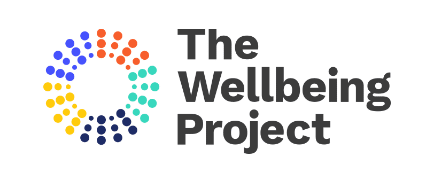04 July 2023
Rising Strong: Cultivating Resilience in Early Careers
In the face of mounting challenges, the mental health and resilience of younger workers is being put to the test. Once they recognise the need for action, organisations can start to introduce proactive measures that will safe guard the future of their talent pool.
In an ever-evolving working landscape, one generation stands out as worthy of attention: Gen-Z. As the most populous and diverse generation in history, they are set to make up a staggering 27% of the workforce in OECD countries by 2025 (World Economic Forum 2022). At the same time, the mental health of these early-career workers has become a pressing concern.
Our research delves into the challenges faced by this generation. Our aim is to provide actionable solutions to support their wellbeing, develop their resilience and enable their potential.
The Early-Careers Mental Health Landscape
The Wellbeing and Resilience Report 2023 tells a disheartening story. Younger workers aged 18 to 25 report the lowest resilience scores across all age groups. Additional research by the City Mental Health Alliance reveals that a staggering 72% of 20-26 year olds have reported poor mental health in the last 12 months.
Sadly, it is females within this age group who are bearing the brunt of this pressure the most. They report 12% lower levels of resilience compared to their male counterparts (The Wellbeing and Resilience Report 2023).

Age and resilience from The Wellbeing and Resilience Report 2023
The Business Impact of Early in Careers’ Mental Health
The adverse effects of this worrying trend ripple through the business landscape, affecting both individuals and organisations.
High absenteeism rates emerge as a prominent concern, with 20% of early-career workers taking sick leave due to poor mental health in the last year alone. For many, individual challenges become a hidden burden, as 8% resort to using their annual leave to cope with their mental unwellness (City Mental Health Alliance).
The consequences of this widespread struggle manifest in disengagement, with a staggering 54% of Gen Z and younger millennials feeling ambivalent or not engaged at work (Gallup, 2022), and 72% planning a career change in the next 12 months (LinkedIn & CensusWide, 2023).
We must also consider the ramifications on early-career workers themselves. Many may find themselves ill-equipped to handle the inevitable challenges that will arise through their working life. Our research reveals that females aged 18-25 report 15% lower levels of self-belief than their male counterparts, while young males often struggle to build strong relationships and access the support they need.
The Main Contributing Factors
The factors that impact mental health are multiple, but work emerges as a prominent contributing factor to this resilience deficit.
45% of young workers attribute their mental health struggles to the pressure of consistently long hours (City Mental Health Alliance).
Younger females cite feeling undervalued as one of the biggest sources of pressure at work, amplifying the negative impact on their mental wellbeing (The Wellbeing and Resilience Report 2023).
Empowering Early-Career Workers
Addressing these early-in-careers challenges requires a multifaceted approach that acknowledges the unique needs of Gen-Z workers. Organisations could consider the following strategies:
1. Prioritise wellbeing:
Gen Z workers look for employers who genuinely care about their wellbeing. In fact, research by Gallup (2021) highlighted this as the number one priority. Having a clearly defined wellbeing strategy that is communicated both internally and externally will send a strong message that your people’s wellbeing is paramount.
2. Provide manager training: Enable your people leaders to create psychologically safe team environments. This includes coaching to understand the impact of their own behaviours, and training to develop a coaching approach to team performance.
3. Adopt flexible working practices: 85% of Gen-Z prefer a hybrid or remote work pattern (Oliver Wyman, 2023) that supports greater flexibility and a healthy work-life balance.
4. Provide access to mentoring: Support the career development and network building of early-in-career workers. The expert guidance and encouragement of more senior colleagues can help them navigate the complexities of the workplace and develop greater confidence and belonging.
5. Support mental health. This includes proactive resilience training and reactive counselling support for when people start to struggle.
6. Tackle mental health stigma: Leaders play a pivotal role in addressing the stigma surrounding mental health. By openly discussing and prioritising mental wellbeing, leaders can create a safe space for early-career workers to seek support without fear of judgment.
Conclusion
The resilience and wellbeing of early-career workers are essential not only for their personal growth but also for the future success of organisations and societies.
As Gen-Z advance in their careers, it is imperative that we empower them to overcome the challenges they face. By implementing strategies that prioritise wellbeing, support psychological safety, offer mentorship and create supportive leadership, we can cultivate a generation of resilient individuals ready to navigate the complexities of work with confidence and thrive in an uncertain future.
Explore the latest data with The Wellbeing and Resilience Report 2023

Explore the latest data with The Wellbeing and Resilience Report 2023








